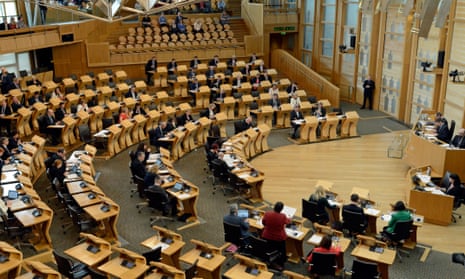Before Scotland got its own parliament in 1999, Tony Blair upset the country of his birth by answering the question of whether Edinburgh should have tax-raising powers. Mr Blair thought it should and that he was stating the obvious by saying “if even a parish council [in England] can, why shouldn’t the Scottish parliament?” In comparing the apparent whimper of English local government to the roar of a national chamber, Mr Blair exposed a condescension that many Scots feel, even today, underscores every move Westminster makes.
This was understandable. The UK, even with devolved parliaments in Wales, Northern Ireland and Scotland, runs the most centralised developed state in the world. Yet it was also misplaced: Mr Blair’s English parish councils have a power to levy taxes by as much as they want – and some have seen budgets rise by 60% in recent years to pay for local services. Holyrood by comparison was born with the ability to vary income tax by just three pence in the pound. Crucially, parish councils have representation with taxation, unlike bigger local authorities in England who have to hold a referendum to raise council taxes above 2%. They could use the cash.
Austerity, as today’s local government settlement shows, has left English council spending on public services 40% lower than in 2010. A better idea than such cuts would be to give local authorities real control over how they tax and spend. People might then bother to vote for them. That is the experience in Scotland. The record turnout in the Scottish independence referendum led to Holyrood rightly being given more revenue-raising powers. Suitably empowered, the minority Scottish National party administration in Edinburgh this week announced it would tax higher earners more than their counterparts in England. This is not done by crude income tax rises; instead the SNP will not pass on the tax relief for higher earners which was approved by Philip Hammond, the UK’s Tory chancellor. If the measure passes from April, those earning less than £27,000 in Scotland – about 55% of the workforce – will pay slightly less than they would in the rest of the UK. A person earning £50,000 in Scotland would face a higher tax bill of £1,500. This will raise £180m to fund public services and pay.
Whatever one’s political persuasion, the SNP is, in its current guise, a tax-and-spend party. It has the mandate to produce a budget that reflects its priorities and diverge from Westminster. This is a breakthrough for Britain, where power is far too concentrated in Whitehall – accessible to the City but distant from voters. Studies show decentralisation is associated with both stronger growth and better public services. In Scotland, social care spending is now 30% higher than in England. A key reason is that the Treasury hijacked devolution in England as a way of palming off responsibility to local councils for making cuts, while keeping the power to make policy. This sleight of hand has to end. Councils ought to be able to provide a range of services that the electorate demands – beginning with libraries, sports facilities and parks. British democracy needs reconfiguring, with mayors, regions and councils playing their part, but vitally giving politicians the ability to raise revenues and direct them where they have been elected to do so.
